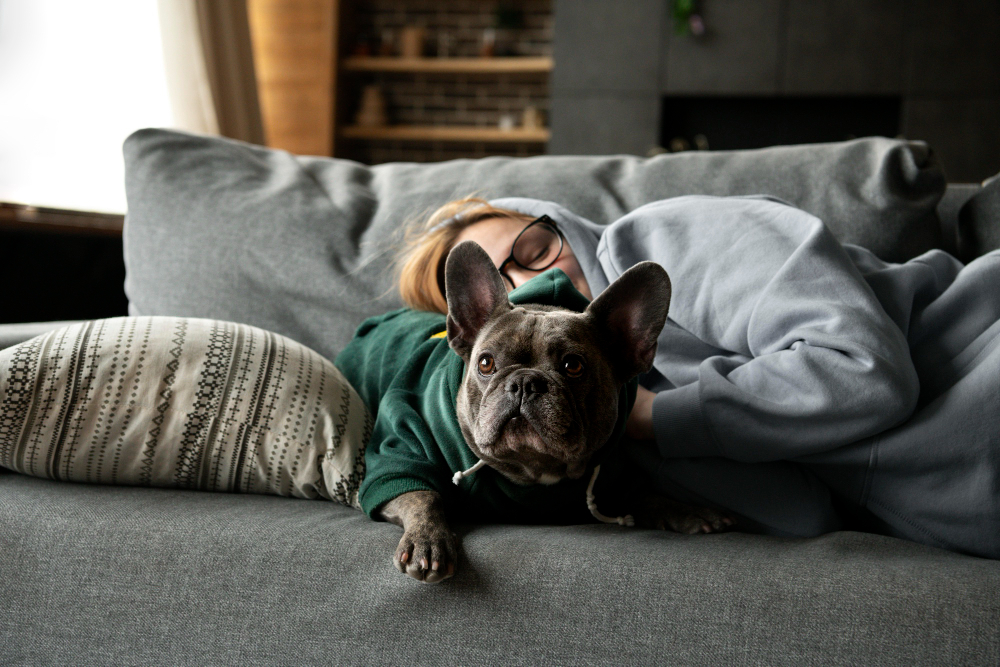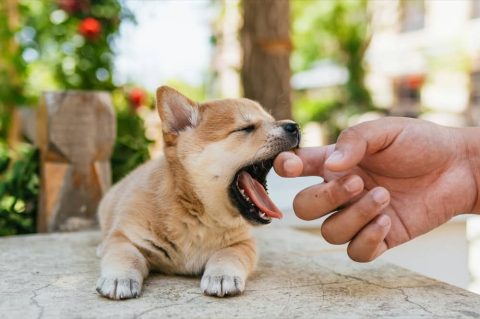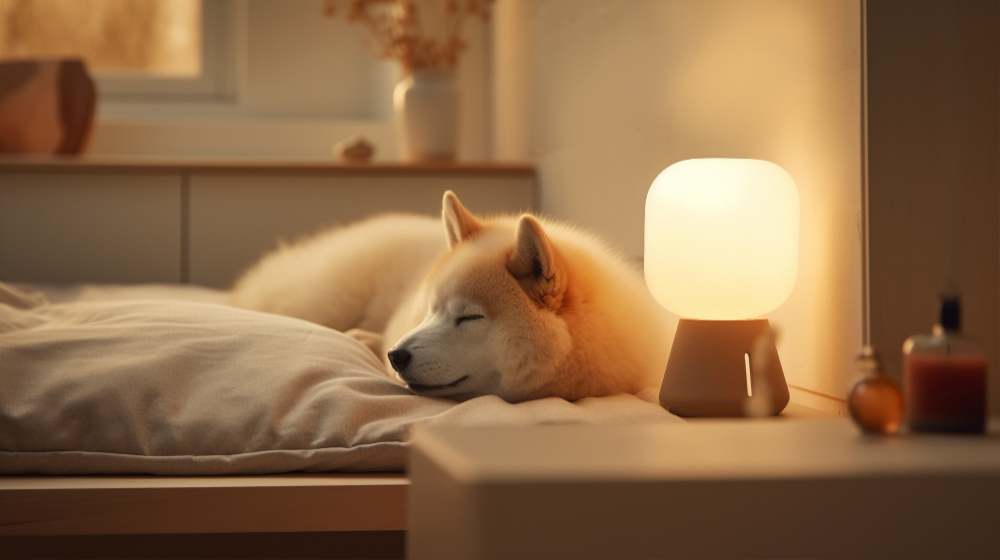If your dog seems wide awake while the rest of the house is winding down, you’re not alone. Many pet parents have spent late hours wondering why their canine companion keeps pacing, barking, or shifting around instead of sleeping soundly. Night-time restlessness in dogs isn’t just disruptive—it can be a sign of unmet needs or underlying issues.
In this guide, we’ll explore common causes of night-time restlessness and offer practical, dog-tested tips to help your furry friend (and you) enjoy a more peaceful night.
Contents
Understanding Why Dogs Get Restless at Night
Common Behavioral Signs
Night-time restlessness in dogs can look like:
- Pacing or circling the room
- Whining or barking unexpectedly
- Scratching at doors or furniture
- Getting up frequently to change sleeping spots
- Suddenly showing hyper energy at bedtime
Whether you live in a quiet apartment or a busy household, spotting these behaviors is the first step to bringing peace back to your pet paradise.
Key Causes of Night-Time Restlessness
Several root causes can keep your dog awake after dark:
- Lack of Exercise: Dogs that haven’t burned off enough energy during the day often struggle to settle down at night.
- Anxiety: Separation anxiety or noise sensitivity (like fireworks or distant traffic) can trigger anxious behavior.
- Physical Discomfort: Pain from arthritis, skin irritations, or digestive issues can prevent restful sleep.
- Environmental Disruptions: A new home, change in sleeping location, or the presence of a new pet might unsettle your dog.
Creating a Calming Sleep Environment
Build a Cozy, Safe Space
Your dog’s sleeping space should offer comfort and consistency. Consider using:
- Orthopedic beds for older dogs with joint pain
- Bolstered beds for added security
- Cooling or heated pads, depending on the season
If you live in an apartment, creating a pet-friendly corner can make a big difference—especially in urban environments like NYC or Chicago, where dogs are surrounded by unfamiliar sounds and smells.
Reduce Noise and Light
Noise sensitivity is a common issue, especially in high-rise buildings or shared complexes. Try:
- White noise machines to muffle sudden sounds
- Blackout curtains or soft nightlights depending on your dog’s comfort
- Keeping your dog away from busy windows or doors
Add Familiar Scents and Items
Sometimes the smallest comfort items—like a blanket that smells like you, or a toy from their puppy days—can reassure your dog that everything’s okay.
Improve Your Dog’s Daily Routine
Exercise: Burn Energy Before Bed
A tired dog is usually a calm dog. If your dog’s zooming around at midnight, chances are their daytime routine needs adjusting.
- Add a light evening walk or interactive play session after dinner.
- Use puzzle feeders or scent-based games like hide-and-seek.
- Mental stimulation can be just as tiring as physical activity!
This is especially important for active breeds or dogs living in smaller areas like pet-friendly apartments. If you’re in places like Oregon or Colorado, take advantage of pet-friendly trails for enrichment.
Create a Consistent Bedtime Routine
Just like toddlers, dogs benefit from structure. Try:
- Brushing or gentle massage before bed
- Turning off bright lights at the same time each night
- Giving a final potty break to reduce overnight accidents
If you’re living in cities with cooler nights, like Portland or Denver, ensure your dog is cozy and warm. If you’re based in Florida or California, make sure they stay cool and hydrated before sleep.

Nutritional Support for Better Sleep
Feed for Calm, Not Chaos
Your dog’s diet can play a role in their night-time behavior. Consider:
- Avoiding late-night meals that could lead to bloating or digestive discomfort
- Offering a final snack an hour before bed if your dog tends to wake up hungry
- Choosing high-quality food without excessive sugar or artificial additives
If you’re shopping locally, stores like Poudre Pet & Feed Supply or Mounds Pet Food may offer sleep-supportive treats and meal options.
Try Natural Supplements (With Vet Guidance)
Some dogs may benefit from gentle calming supplements like:
- Melatonin
- L-theanine
- Chamomile or valerian root
Always check with your vet before introducing anything new—especially if your dog is already on medication or enrolled in a plan like USAA Pet Insurance or Pet Insurance Oregon.
Support Older or Special-Needs Dogs
Age-Related Restlessness
Senior dogs can develop Canine Cognitive Dysfunction (CCD)—a condition similar to dementia in humans. Signs include confusion at night, pacing, and changes in bathroom habits.
Other issues might include:
- Increased need to urinate at night
- Joint stiffness
- Disorientation in new surroundings
If your older pup recently became restless, it’s worth scheduling a check-up. Clinics like Massapequa Pet Vet or Brookhaven Pet Hospital offer thorough senior pet assessments.
Managing Special Medical Conditions
For dogs diagnosed with conditions like IVDD (Intervertebral Disc Disease), restlessness may stem from pain. Thankfully, many insurance plans like Liberty Mutual Pet Insurance or ASPCA Pet Insurance Discounts now offer coverage for ongoing care and medication.
When It’s Time to See a Vet
If your dog is still restless despite routine, exercise, and comfort changes, it may be time to consult a professional. Call your vet if you notice:
- Continuous whining or circling at night
- Loss of appetite or changes in bathroom behavior
- Limping, panting, or sensitivity to touch
In cities like Chicago, Salt Lake City, or Savannah, pet emergency centers are often open 24/7 to assist with unexpected concerns.
Final Thoughts
Reducing your dog’s night-time restlessness is a mix of understanding, consistency, and care. By improving their routine, addressing anxiety, offering a soothing environment, and ensuring physical comfort, you’ll both enjoy better sleep.
Whether you live in a bustling city or quiet suburb, your pup deserves to feel secure when the sun goes down. And remember, if you’re ever unsure, don’t hesitate to reach out to your local vet or behaviorist.
For more pet wellness guidance and to discover thoughtful products like custom pet pajamas or calming pet embroidered sweatshirts, stay tuned for more tips from your trusted pet resource center.









